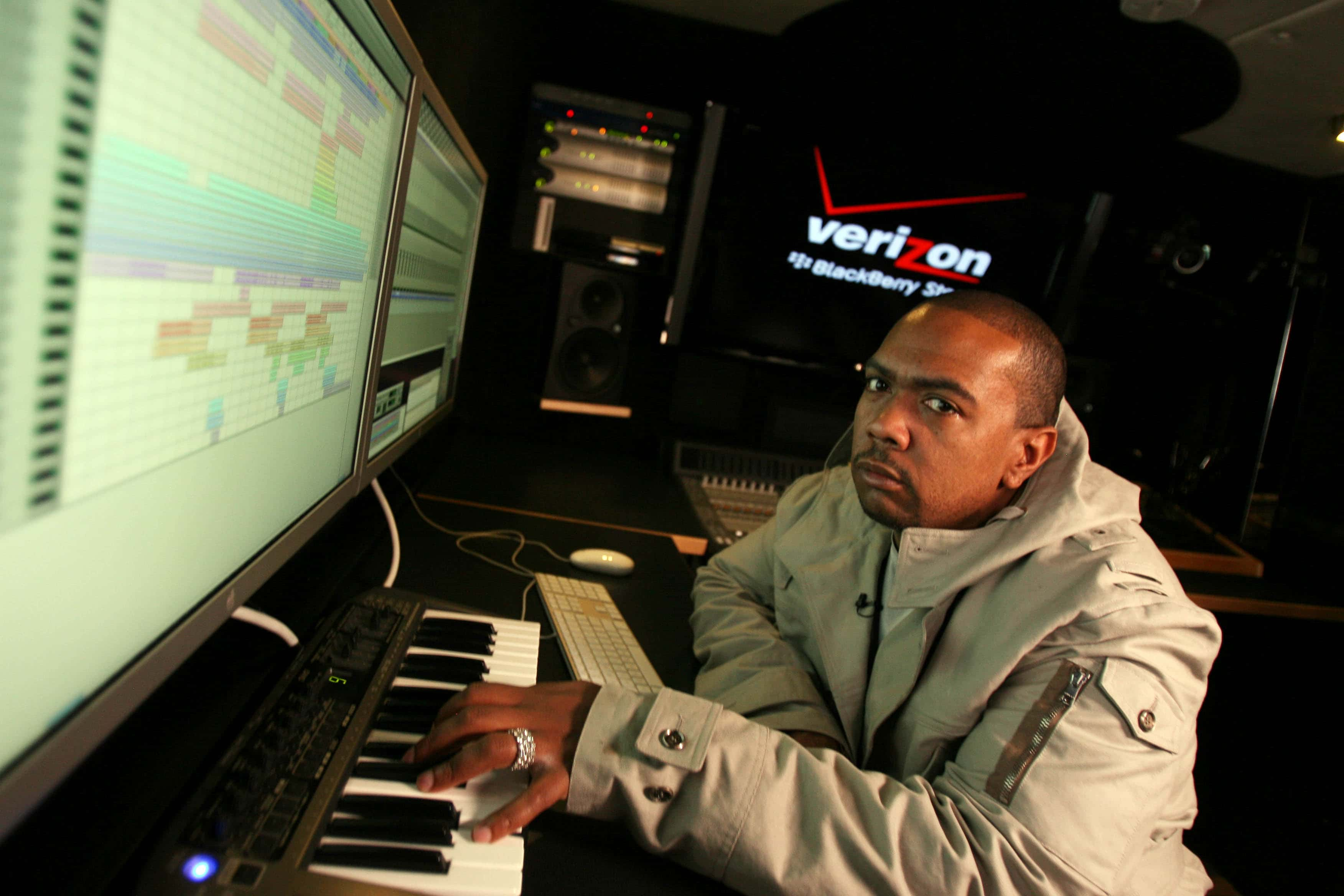Did Timbaland plagiarize songs? Here's the truth behind allegations about producer ripping off Arabic classics

American music producer Timbaland has found himself amid a music sampling accusation by several fans on Twitter after a radio presenter from the Middle East posted some Arabic classics, which Timbaland reportedly used to create some of his songs.
Earlier on January 19, Middle Eastern and North African DJ specialist Nooriyah posted a video on Twitter where she wrote that Timbaland’s hits were sampled from Arabic classics.
In the edited video clip, Nooriyah took three of Timbaland’s songs, followed by the original pieces. The first song in the video is Jay-Z’s ‘Big Pimpin’ which reportedly has parts from 1957’s Abdel Halim Hafez’s song, ‘Khosara'. The second song in the video is Aaliyah’s ‘More Than a Woman', which reached number one on the UK Singles Chart in 2001. Reportedly the piece has similarities with Syrian singer Mayada El Hennawy’s famous song, ‘Ansa'. The last song on the list is Aaliyah’s ‘I Don’t Know,’ which resembles Warda’s ‘Batwanis Beek.’
Everyone knows @Timbaland is a master of his craft. Did you know these three hits sampled these Arabic classics? 🎧 To hear more about the Middle Eastern influence in Western mainstream music (that was once called “Belly dance music”) head to my Plus 1 Radio show on Soundcloud pic.twitter.com/kCetOo6ONH
— Nooriyah (@Nooriyah_) January 18, 2021
Following this, several fans started to talk about Timbaland and how the famous music producer allegedly sampled many pieces. One said, "Timbaland just stole these beats man LOL. Barely even changed a thing." Another user said, "Twitter now trying to cancel Timbaland because......(wait for it).... he uses samples. ....is it me or is the Internet actually getting dumber the older it gets?" One more said, "Timbaland is trending because Twitter is mad at him for using samples from all over the world. Sampling is an important part of hip hop. It’s the ability to use other art to create something new. The sample could either be chopped or untouched. Let’s not be weird today."
Timbaland just stole these beats man LOL. Barely even changed a thing https://t.co/x93PhTuzwt
— #EndSARS (@AliquamScripto) January 18, 2021
Twitter now trying to cancel Timbaland because......(wait for it).... he uses samples.
— Ishkur (@Ishkur23) January 18, 2021
....is it me or is the Internet actually getting dumber the older it gets?
Timbaland is trending because Twitter is mad at him for using samples from all over the world.
— Dedee 🥀 (@thoughtfulbae) January 18, 2021
Sampling is an important part of hip hop. It’s the ability to use other art to create something new. The sample could either be chopped or untouched. Let’s not be weird today.
What is Music Sampling?
With advancing technologies and new software that assist music producers, it has become easier for artists to sample and integrate another’s finished recording to create a new piece. In the music industry, sampling is a widespread technique of reusing a portion or sample of a sound recording in another recording. Music sampling may comprise the melody, sounds, equalized or a portion that is slowed down or otherwise manipulated.

Music sampling is the foundation of hip hop music, which started after several music producers started to copy bits and parts of other recordings. For instance, samples such as Amen break’s ‘Funky Drummer’ drum break have reportedly been used in thousands of other musical works.
In today’s music world, several known artists from the pop world have mixed and weaved together different samples into their music. With the practice becoming even more prevalent, one must understand the core rules of music sampling and obtain proper clearance to avoid any legal trouble when the music hits the market. Unlicensed instances of copying the portion of another’s sound recording can subject a creator to potential liability for copyright infringement. To avoid any legal trouble, an artist must obtain a sample clearance from the appropriate owner of the original recording.
Timbaland Music Sampling Controversy
This is not the first time when Timbaland, 48, has found himself in a music sampling controversy. In 2007, he was accused of plagiarizing several bits and pieces in Nelly Furtado’s song ‘Do It', composed by Finnish artist Janne Suni. The acclaimed music producer did not give proper credit or compensation, which led him to face legal trouble.

Timbaland responded to the allegations and said in an interview that everybody samples from everybody every day. He even called Janne Suni an “idiot” and a “freakin’ jerk” on a radio show. During his MTV interview, dated February 9, 2007, Timbaland said, ""It makes me laugh," he said. "The part I don't understand, the dude is trying to act like I went to his house and took it from his computer. I don't know him from a can of paint. I'm 15 years deep. That's how you attack a king? You attack moi? Come on, man. You got to come correct. You the laughing stock. People are like, 'You can't be serious.'"
Later in 2014, Timbaland again found himself facing plagiarism accusations concerning the track ‘Versus’ by Jay-Z. As reported back then, the song’s instrumental piece was pretty similar to Bruno Spoerri’s ‘On The Way'. A year later, the legal case was settled after both Jay-Z and Timbaland were asked by the court to pay 50 percent of the song’s revenue to Spoerri.










